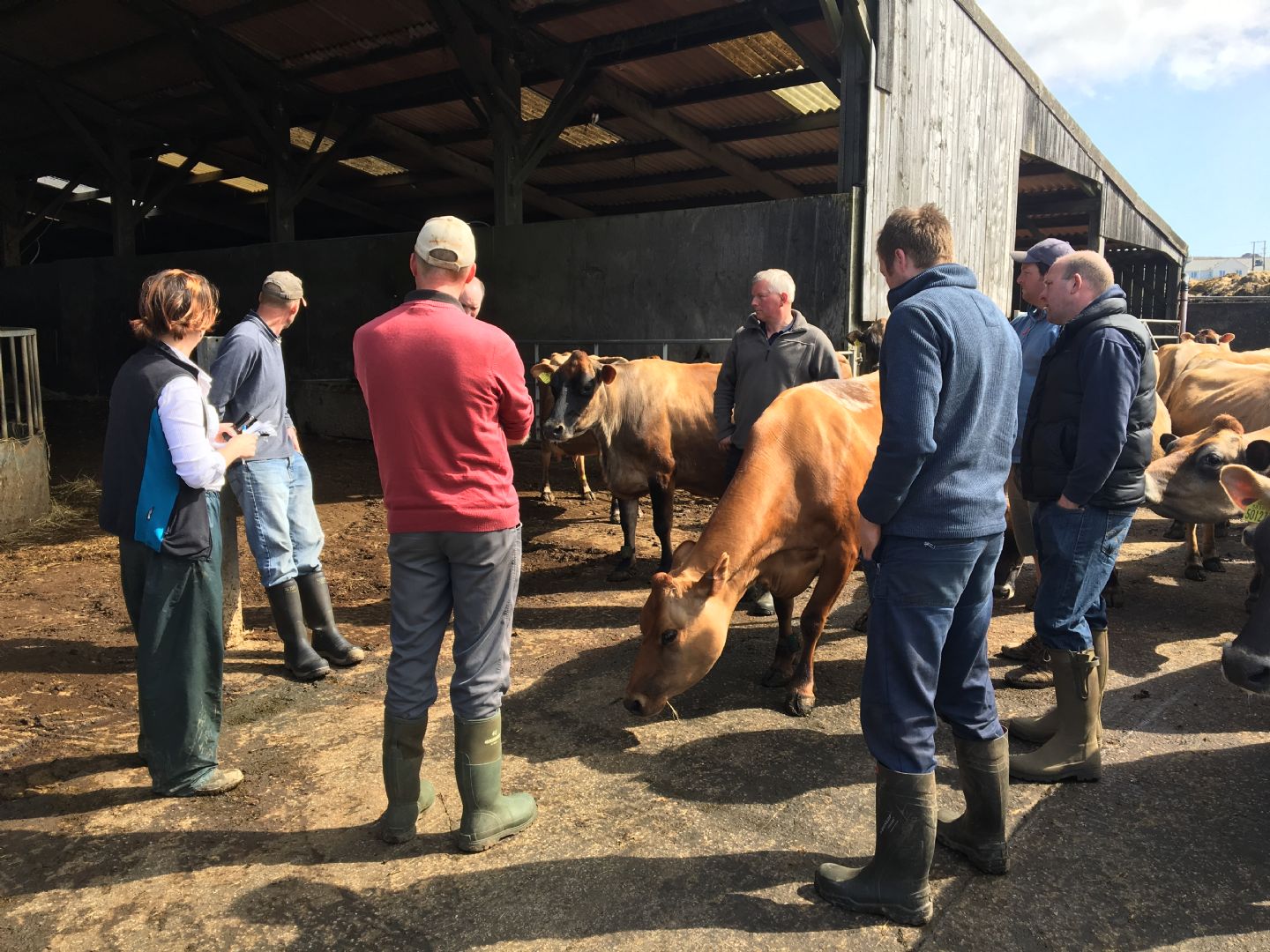
“Antibiotics Anonymous” - the nickname given to the farmer action groups by pioneering dairy farmers participating in an AHDB Dairy/Langford Trust-funded research project on reducing antimicrobial use. Coordinated and facilitated by Dr Lisa Morgans – then livestock vet at University of Bristol, now Head of Livestock at IfA - this participatory research aimed to empower dairy farmers to make changes to improve how they managed their herds, how they used antimicrobials and to reduce their dependence on them.
Between 2016 – 2018, 30 dairy farms took part in the facilitated, farmer-led project. They formed 5 regional groups across the South West of England and met on one another’s farms every 4-8 weeks to discuss how they were going to reduce usage. Each meeting involved a medicine use benchmarking exercise, a farm walk led by the host farmer, lunch, and then facilitated discussion on practical ways to improve livestock health and welfare to reduce antimicrobial use. Discussion was not restricted to talking about antimicrobials; farmers were encouraged to identify opportunities to change any factor that impacted the health of their herds and businesses, and to give recommendations or solutions for the host farmer to implement. Each farm participant hosted their group twice in a cyclical process of continued support and improvement.
A key output from the discussions was the co-creation of an Action Plan based on the group’s recommendations. After 1 year of the project, >80% of farms had implemented more than a third of their Action Plan and many recommendations were ongoing. Farmers found the participatory Action Planning process, visiting other like-minded farmers as well as the practical farm walk and discussions as pivotal in helping them change.
Lisa collected an abundance of qualitative data throughout the 2-3 years and analysed it to understand why and how the project helped farmers change practices and reduce antimicrobial use. Two main themes that explain why were;
(1) the generation and movement of knowledge between the farmers and the facilitators, as well as the importance in helping participants with gaps in their knowledge that their vets should have been, but were not, supporting them with at the time, and,
(2) the sense of solidarity fostered in the farmer action groups as they navigated a process of change as a peer group.
Medicine use also changed over the course of the project, with 21/30 farms reducing or eliminating the use of Highest Priority Critically Important Antimicrobials (HPCIAs). Six farms were not using these critical medicines from the outset. It is important to note that these reductions were almost over night for many and before Red Tractor Farm Assurance came into place (i.e. June 2018). Farmers in the groups valued the experiential and farmer-led knowledge and the support they received to make the transition.
This type of peer-to-peer approach is well researched and has many applications in the food and farming world. Lisa would like to see more vets trained in this approach and facilitation skills because it will be pivotal in helping farming adapt to the changes we face.
To read the full research article click here




